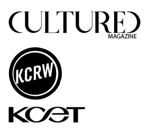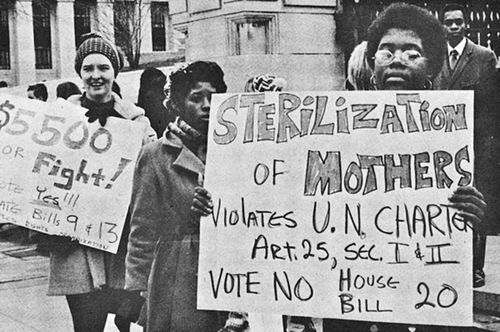
Forced Sterilization: Then and Now
- This is a past program
Forced sterilization of women who are poor, have mental health problems, or are incarcerated was commonplace in California—and nationwide—only 50 years ago. While today legally banned, forced sterilization and other means of controlling the reproductive rights continue to insinuate themselves into public policy and lawmaking. Filmmaker and historian Virginia Espino, California Latinas for Reproductive Justice executive director Laura Jimenez, and professor of Gender and Women's Studies and Latin American and Latino Studies Elena Rebeca Gutiérrez discuss the historical and contemporary consequences of this problematic practice. Moderated by UC Santa Barbara professor Miroslava Chavez-Garcia.
This program is in conjunction with a screening of No Más Bebés on October 24.
Esterilización forzada: entonces y ahora
Domingo 29 de octubre a las 3 p.m.
La esterilización forzada de mujeres pobres, con problemas de salud mental o presas era común en California, y en todo el país, hace apenas 50 años. Si bien hoy en día está legalmente prohibida, la esterilización forzada y otros medios para el control de los derechos reproductivos continúan insinuándose en las políticas públicas y los procesos legislativos. La realizadora cinematográfica e historiadora Virginia Espino, la directora ejecutiva de California Latinas for Reproductive Justice (latinas de California por la justicia reproductiva), Laura Jiménez, y la profesora Elena Rebeca Gutiérrez analizarán las consecuencias históricas y contemporáneas de esta práctica problemática. Moderado por la profesora de UC Santa Barbara Miroslava Chávez-García.
All Hammer public programs are free and made possible by a major gift from an anonymous donor.
Generous support is also provided by Susan Bay Nimoy and Leonard Nimoy, Good Works Foundation and Laura Donnelley, an anonymous donor, The Samuel Goldwyn Foundation, and all Hammer members.
The Hammer’s digital presentation of its public programs is made possible by the Billy and Audrey L. Wilder Foundation.
Hammer Forum is an ongoing series of timely, thought-provoking events addressing social and political issues.
Hammer Forum is made possible in part by Bronya and Andrew Galef.
Media sponsorship is provided by KPCC Southern California Public Radio.
![]()

Radical Women: Latin American Art, 1960-1985 is organized by the Hammer Museum, Los Angeles, as part of Pacific Standard Time: LA/LA, an initiative of the Getty with arts institutions across Southern California. The exhibition is guest curated by Cecilia Fajardo-Hill, Andrea Giunta with Marcela Guerrero former curatorial fellow, in collaboration with Connie Butler, chief curator, Hammer Museum.
Radical Women: Latin American Art, 1960–1985 is made possible through lead grants from the Getty Foundation.
Major funding is provided by the Diane and Bruce Halle Foundation and Eugenio López Alonso. Generous support is provided by the Vera R. Campbell Foundation, Marcy Carsey, Betty and Brack Duker, Susan Bay Nimoy, and Visionary Women.
Additional support is provided by the Radical Women Leadership Committee and the Friends of Radical Women.

Media sponsorship is provided by Cultured magazine, KCET, and KCRW 89.9 FM.











![Sandra Eleta (Panamanian, b. 1942), Edita (la del plumero), Panamá (Edita [the one with the feather duster], Panama), 1977](/sites/default/files/styles/related_content_teaser/public/migrated-assets/media/exhibitions/2017/PST_Radical_Women/Eleta__Sandra.jpg?h=46193da9&itok=I4LXMVqO)













![María Evelia Marmolejo (Colombian, b. 1958), Anónimo 1 (Homenaje a los desaparecidos y torturados dentro de los hechos violentos) (Anonymous 1 [homage to those disappeared and tortured in violent incidents]), 1981.](/sites/default/files/styles/related_content_teaser/public/migrated-assets/media/exhibitions/2017/PST_Radical_Women/Marmolejo__Maria_Evelia_Anonimo_1.jpg?itok=Bhg0C-jD)








